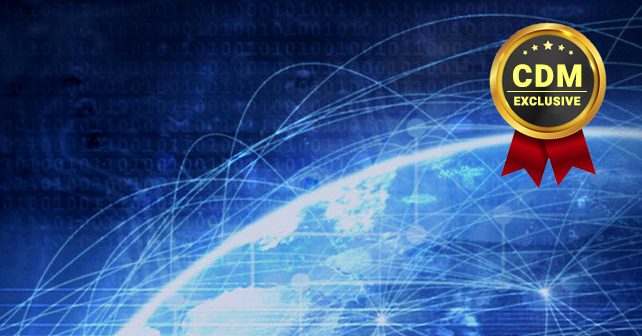By Reuven Harrison, CTO, and co-founder, Tufin
As technology continues to reshape business, organizations globally are embracing the digital age to drive growth, operate more efficiently and advance above the competition. Ask any C-level executive today what initiatives are top of mind this year, and their response will most likely include, ‘digital transformation.’ In fact, a recent survey from AppDirect shows that nearly 80% of companies are in the process of digital transformation.
While enterprises march towards the digital promised land of efficiency and agility, they also find themselves wandering into a territory riddled with risk. With digital transformation comes the advent of DevOps, the cloud, containers and more – and while keeping pace with the latest technologies and approaches is important for agility, so is remaining secure amidst constant change.
Managing the evolving network in the age of digital transformation can no longer rely on outdated and manual processes. With organizations on track to continue their digital journeys, your IT teams must turn to automation to keep up with the pace of business. In order to ensure hybrid networks remain secure and compliant through this constant change, enterprises should take a security policy-based approach to automate firewall, policy and application changes. A focus on security policy provides the foundation for organizations to automate network and application changes and ensure hybrid networks remain secure and compliant.
There are three elements of digital transformation that highlight the need for policy-based automation:
Fast Is Not Fast Enough
In today’s software-driven world, speedy and agile development is one of the most important functions at an organization. Unfortunately, because of its manual and often cumbersome processes, IT security teams are sometimes seen as roadblocks to DevOps teams. While developers surely want to know that their apps are secure, they also don’t want security to slow business down or get in the way of rolling out new features. Automation of security policy as part of the CI/CD process can ensure both teams are successful and happy as it operates in the background, effectively embedding policy changes into the automation pipeline.
The Rise of Cloud, Containers, and Microservices
The advent of cloud, containers, microservices have enabled rapid deployments and scalability as they are lightweight, faster, more portable and more scalable. However, with speed comes consequences, and according to the Cloud Security Spotlight report by Alert Logic, 62% of cybersecurity and IT professionals name misconfiguration of cloud platforms as the single biggest threat to cloud security. By eliminating error-prone manual processes through the automation of security policy changes, organizations can proactively detect and correct security issues before they get into production to ultimately avoid a damaging breach.
Too Much Work, Too Few Resources, Never Enough Time
While networks become more complex and change requests increase, the number of skilled security professionals across the industry decreases, making it nearly impossible for security teams to keep up with business demand. As a force multiplier, the automation of security policy changes alleviates the manual and tedious tasks that take up time and resources so that IT teams can focus on more important tasks – all without sacrificing security.
As long as digital transformation continues on, the need for policy-based automation grows. If your organization is looking to embrace the fast new digital age, there’s no better time to begin implementing security policy-based automation.
About the Author
 Reuven Harrison is CTO and Co-Founder of Tufin. He led all development efforts during the company’s initial fast-paced growth period, and is focused on Tufin’s product leadership. Reuven is responsible for the company’s future vision, product innovation and market strategy. Under Reuven’s leadership, Tufin’s products have received numerous technology awards and wide industry recognition. Reuven brings more than 20 years of software development experience, holding two key senior developer positions at Check Point Software, as well other key positions at Capsule Technologies and ECS. He received a Bachelor’s degree in Mathematics and Philosophy from Tel Aviv University. Reuven can be reached through Twitter (@reuvenharrison), LinkedIn, and at Tufin’s website http://www.tufin.com.
Reuven Harrison is CTO and Co-Founder of Tufin. He led all development efforts during the company’s initial fast-paced growth period, and is focused on Tufin’s product leadership. Reuven is responsible for the company’s future vision, product innovation and market strategy. Under Reuven’s leadership, Tufin’s products have received numerous technology awards and wide industry recognition. Reuven brings more than 20 years of software development experience, holding two key senior developer positions at Check Point Software, as well other key positions at Capsule Technologies and ECS. He received a Bachelor’s degree in Mathematics and Philosophy from Tel Aviv University. Reuven can be reached through Twitter (@reuvenharrison), LinkedIn, and at Tufin’s website http://www.tufin.com.


